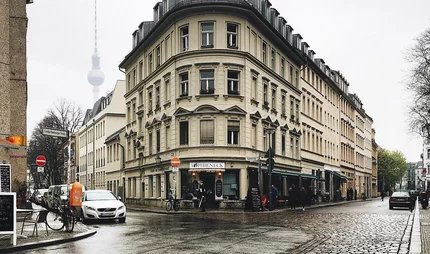
Turkish Cemetery
Germany’s first Muslim cemetery
Even diplomats from the Ottoman Empire were buried at the Turkish cemetery in Berlin. Go in search of its history.
Ali Aziz Efendi was the author of the Muhayyelât, a fantastical collection of tales from the Orient. He brought his culture to Berlin when he became the Ottoman Empire’s first permanent ambassador to Prussia. In 1798 he was buried on what was then known as the Tempelhofer Feldmark. In subsequent years, other Turkish envoys in Berlin were laid to rest there. Eventually, in the mid-19th century, Wilhelm I granted the Turkish community a plot of land in Neukölln to use as a burial place, and for a long time it remained the only Muslim cemetery in Germany.
The history of the cemetery
The Türkischer Friedhof Berlin is the oldest burial place for adherents of Islam in Germany. Inaugurated in 1866, its entrance was once adorned by a portal in the Moorish style. In the middle of the cemetery stands an obelisk commemorating the ambassador Ali Aziz Efendi and other envoys. In the First World War, the Ottoman Empire fought on Germany’s side and fallen Turkish soldiers were buried at the cemetery, since when it has also borne the name Şehitlik, meaning ‘martyrs’. The Şehitlik mosque directly beside it was built between 1999 and 2005 and took its name from the cemetery.
Famous personalities buried at the cemetery
Since its dedication in 1866, the cemetery has been open to all Berlin Muslims, no matter what their origins are. Not only Turks, but Arabs and Persians of Muslim faith were buried here in the 20th century. 150 graves are preserved today. As well as Turkish politicians and diplomats, those laid to rest at the cemetery include businessmen, writers and freedom fighters.
Because Islam does not permit graves to be removed after a certain time to make room for new burials, the cemetery eventually ran out of space – not least since until a few years ago, it was the only Muslim cemetery in Germany. Because of the need for more space, the Turkish-Islamic Union was granted part of the cemetery in Gatow, which is still used today. However, the ceremonies still take place in Neukölln.
open all day
